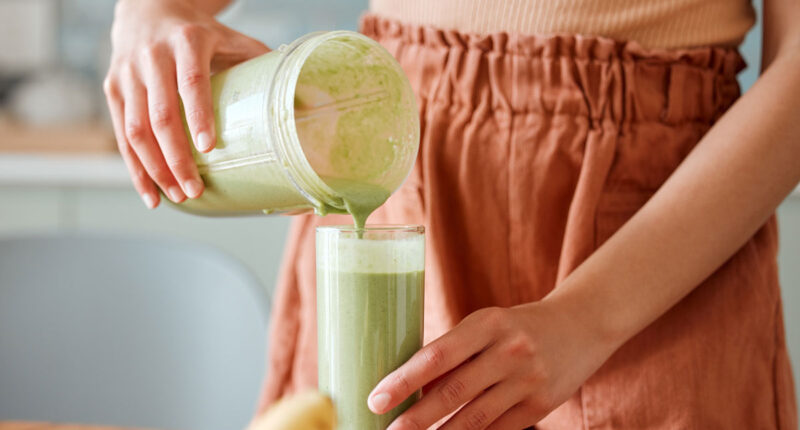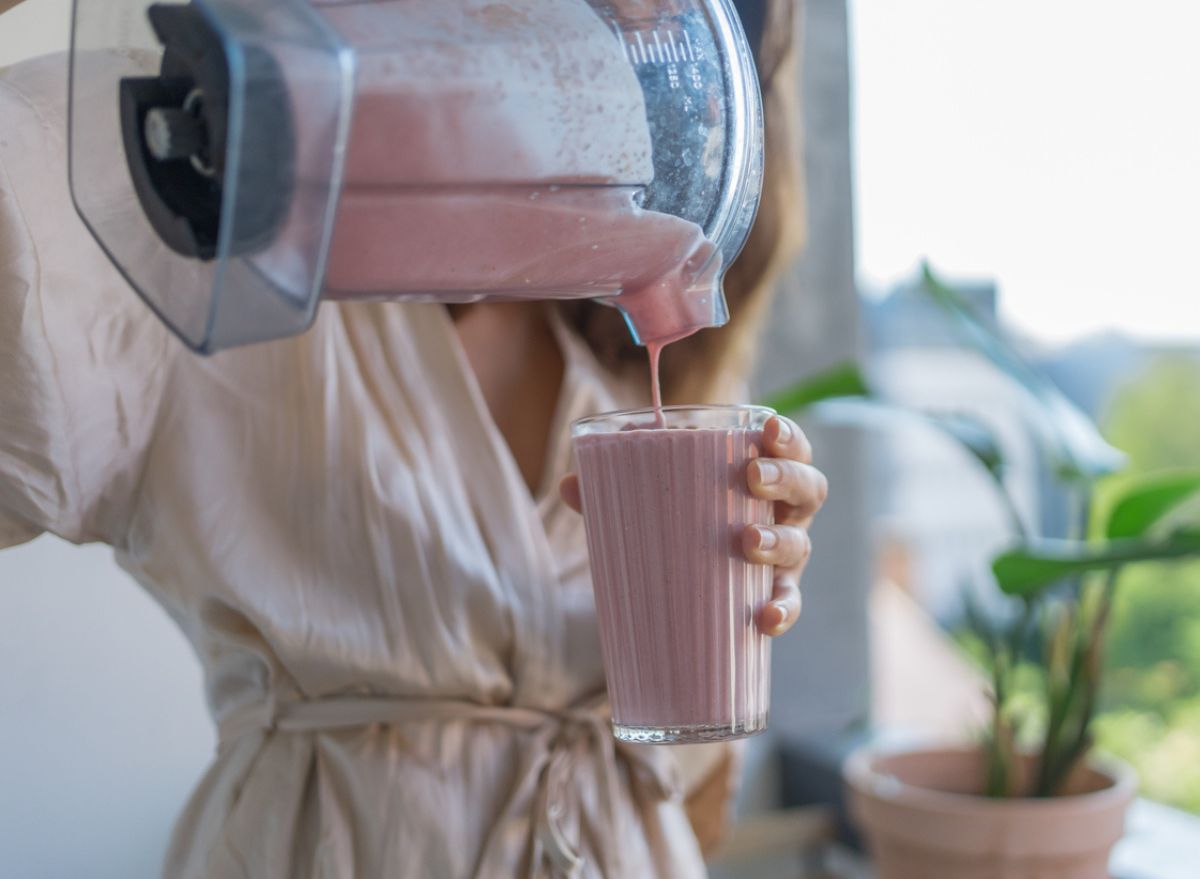5 Ways Your Smoothie Is Making You Gain Weight – Making healthier choices for yourself can still mean enjoying your favorite foods and drinks. Take smoothies, for example. You can pack a ton of delicious, healthy ingredients into one drink that you can either sip on the go or while you’re working from your desk. But while this beverage can be a nutritious part of your day and can help you achieve some of your dietary goals, experts also say there are common ways smoothies can cause weight gain, as well.
On the one hand, if you’re careful about what you put in your smoothie, you can use it to help you reach your desired protein, fiber, and vitamin levels for the day while keeping your calories, fat, and added sugar levels on the lower end. But on the other hand, smoothies can quickly become unhealthy if you’re not focusing on what goes inside.
Read on to learn what dietitians have to say about how your smoothie may be causing extra weight gain, as well as a few tips for making them healthier.
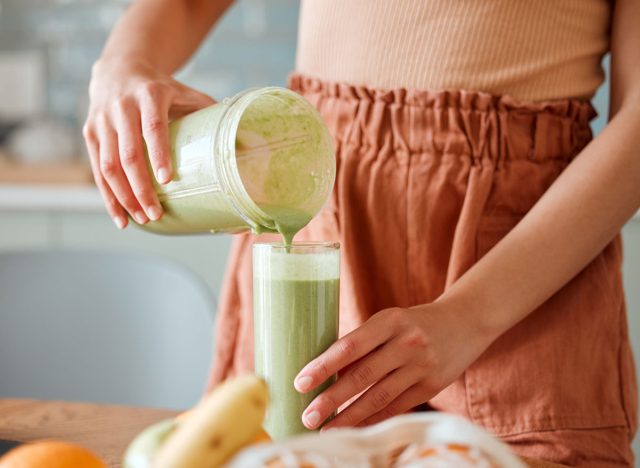
If you’re intentional about the ingredients you use for your smoothie, this drink can be a quick and easy way to add a boost of protein to your day. Not only does protein help you build more lean muscle and lose more body fat, but “protein can also help you feel full longer,” says Trista Best, MPH, RD, LD at Balance One Supplements.
According to Mary Sabat MS, RDN, LD, including enough protein (as well as fiber) is crucial for a healthy smoothie. “If a smoothie lacks these components, it may not keep a person feeling full for long, potentially leading to increased calorie consumption from other sources throughout the day.”
In fact, one study published in the journal Obesity found that when participants consumed a low-protein breakfast, on average, they consumed more food in subsequent meals. Researchers believe that this effect is due to individuals compensating for a low-protein meal by increasing their protein intake by eating more food later in the day. The study also found that when participants consumed a higher-protein breakfast, they ate less food intake for subsequent meals. This is one of the ways that not getting enough protein can sometimes lead to excess calorie consumption and weight gain.
To include more protein in your smoothies, try adding cow’s milk, Greek yogurt, chia seeds, or your favorite protein powder.
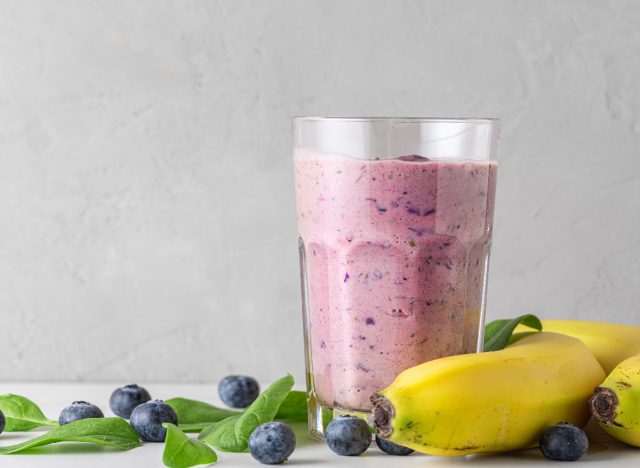
When it comes to avoiding weight gain, some people may not realize the importance of including enough fiber in what they eat and drink. Not only can a diet high in fiber help prevent multiple chronic illnesses, but it can also help regulate appetite by increasing satiety and helping to improve the gut microbiome.
“Fiber plays a crucial role in satiety and digestive health, but it is often left out of smoothies, especially those that do not contain the peels of fruit or are made with fruit juices,” says Best. “If your smoothie lacks fiber-rich ingredients such as [whole] fruits, vegetables, or whole grains, you may not feel as satisfied after consuming it.”
Because of this potential lack of satiety, Best says that “This could lead to increased hunger and potential overeating later in the day, contributing to weight gain.”
According to Lisa Young, PhD, RDN, author of Finally Full, Finally Slim and member of our Medical Expert Board, some of the best sources of fiber for your smoothies are “berries, kale, avocado, kiwi, pear, beans, flax meal, and chia seeds.”
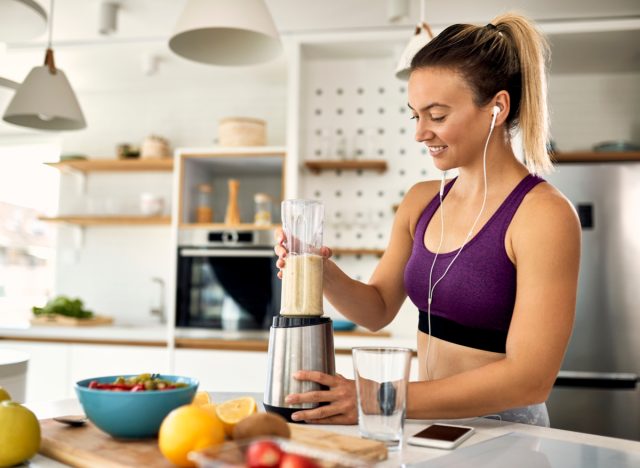
It’s common to add extra sweeteners to your smoothie, especially if you’re making a green drink with a ton of vegetables and leafy greens, as these tend to be on the bitter side. However, experts warn that higher amounts of these added sweeteners can contribute to your calorie count and potentially lead to more weight gain.
“While natural sweeteners like honey, maple syrup, or agave nectar may seem healthier than refined sugar, they do still contain calories and can contribute to weight gain if used excessively,” says Sabat. Best adds that “Consuming excessive amounts of sugar can lead to weight gain, as it provides empty calories without offering substantial nutritional value.”
You certainly don’t need to get rid of these sweeteners altogether, but monitoring how much you’re using can make a difference in your health goals. When you can, try using fruit to sweeten your drink before adding extra sources of sugar, or as Young suggests, you can “sweeten your smoothie by adding in a date or two as well.”
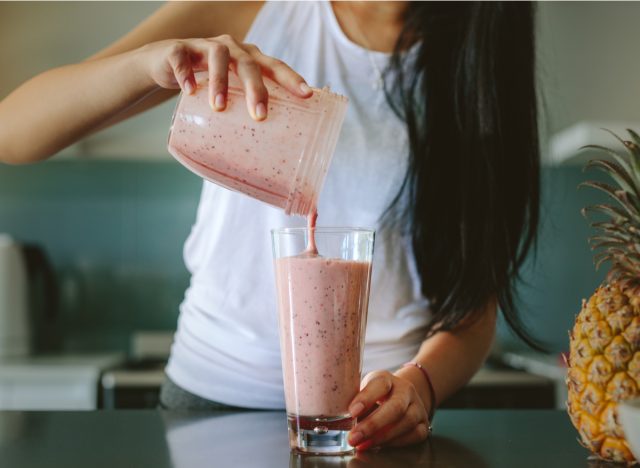
According to Young, when you’re drinking smoothies, “It is important to be mindful of portion sizes and intake to prevent overconsumption.”
As we mentioned previously, making a smoothie is a yummy way to incorporate healthy protein-rich, fiber-heavy ingredients into your daily routine. However, this can get a bit tricky, as “too much of a good thing” can be true even for smoothies, and consuming too many calories through your drink can derail your goals.
Although there are many dietary factors related to weight gain, such as not eating enough protein, consuming too many processed foods, and eating a high-sugar diet, at the end of the day, consuming more calories than you’re burning throughout the day brings on the extra pounds.
Common smoothie ingredients like full-fat yogurt, nut butters, nuts, and avocado offer health benefits like protein, fiber, and healthy fats, but items like these still have a fairly high calorie count, and according to Sabat, “This means they can significantly increase the calorie content of the smoothie, leading to weight gain if consumed in excess.”
You should still include these foods if you enjoy them and want their health benefits, but if you’re noticing weight gain and can’t pinpoint the source, this may be a helpful place to start.
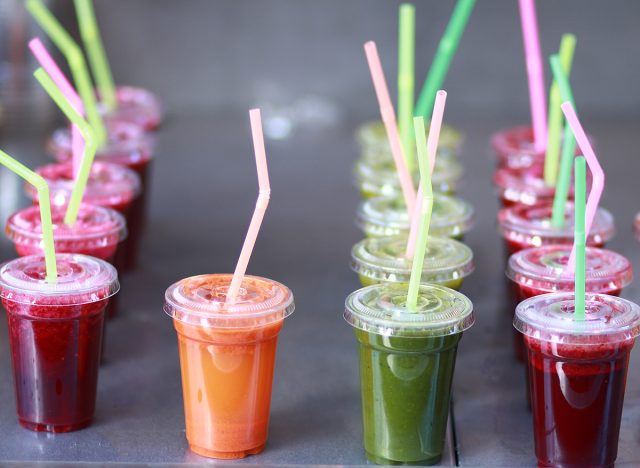
We’ve discussed how smoothies with too much added sugar and not enough protein or fiber can contribute to weight gain, and one of the most common culprits when it comes to these qualities is a store-bought, pre-made smoothie. Drinking these means you don’t have any control over which ingredients (and how much of each) are used.
“Pre-packaged or store-bought smoothies can often be loaded with added sugars and preservatives, making them less healthy choices,” says Sabat. “These additives can increase the calorie content and promote weight gain if consumed regularly.”
For example, the Bolthouse Protein Plus Strawberry Smoothie may have 30 grams of protein, but with only 1 gram of fiber and 39 grams of total sugar, with 25 of those grams coming from added sugar, it’s best to leave this one be. We can also say the same for the Naked Juice Blue Machine. This bottled smoothie has a total of 55 grams of sugar, as well as only 3 grams of fiber and 2 grams of protein, meaning there’s almost nothing to keep you feeling full.
